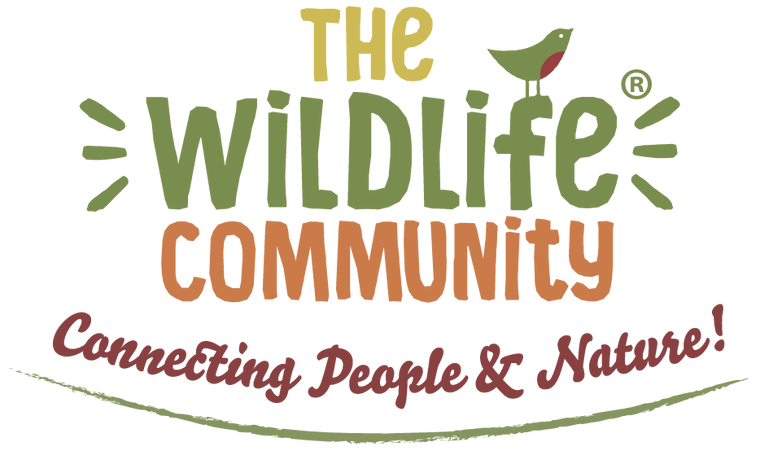
Ep.10 - Herbs For Bees
Known as 'the queen of herbs', Jekka McVicar is a famed herb farmer working from her 'Herbetum', known as Jekka's Farm, on the outskirts of Bristol. In this podcast, she takes us on a tour of her weird and wonderful herbs. Celebrating the benefits of growing herbs - not just for cooking - but also for wildlife. The farm itself is alive with the sound of buzzing bees. Listen to the full podcast below, or subscribe to The Wildlife Community Podcast using your usual podcast provider.
Competition Alert
If you are listening to this podcast episode in the first week of its release, then you could be in with a chance of winning two tickets to an Open Day at Jekka's Farm, on either 10th or 11th June 2022, together with a signed copy of Jekka's Herb Cookbook, featuring a forward by Jamie Oliver and more than 250 original recipes using Jekka's 50 top garden herbs.

All you need to do is listen to the podcast, and tell us what is Jekka's quite unusual technique for telling whether the soil is warm enough outside to plant in? Email your answer to hello@wildlifeworld.co.uk with the subject line Podcast Competition and we'll pop you in the draw to win.
Ts&Cs - one entry per person. You must be over 18 to enter. There are two tickets to an Open Day at Jekka's Farm on either 10th or 11th June 2022. No monetary equivalent and no refunds or exchanges are possible. Competition closes 23:59 Sunday 15th May 2022.
Find out more about Jekka's Herb Farm and other events happening this year here.

How to grow a herb garden for bees
Jekka says, “The great thing about herbs is they are naturally wild plants, which is why the pollinators love them so much. They are open pollinated. It’s like it’s handed down through history, through their DNA, how to benefit from them. But because they are wild plants, they are invasive. So my top tip for anyone starting a small bed with herbs in – choose herbs you are going to use. Because then you are going to start keeping the plant under control and stop it invading the rest of your space.
“I would choose a cross section of plants so that you have got flowers at different times. Really good ones for the small garden are things like thyme, marjoram, they’re excellent, they won’t invade, they won’t take over too much. And they will attract pollinators. And some of the smaller lavenders are also very good.”

Jekka's Mint
Mint as a general plant will die back over winter but can be picked between late spring and mid-autumn. Jekka recommends picking mint regularly to keep plants compact. So only grow mint, if you intend to use it regularly in cooking or making mint tea. Always pick mint from the top down. It grows well in any soil, but prefers its roots in shade with the sun on its leaves. As well as being great to cook and bake with, mint flowers will attract pollinators including bees, butterflies and hoverflies and deters pests like whitefly from nearby plants. You can find out more about Jekka's Mint, as mentioned on the podcast, here.
Marjoram
The marjoram plant produces clusters of pinky-white flowers which are particularly attractive to all of the bees - honey, bumble and solitary bees. It flowers in summer and warm early autumns. The leaves can be used in salads and cooking with meat, marinades, eggs and vegetables. In fact, as Jekka mentions in her Herb Cookbook, Marjoram has "a soothing effect on the disgestive system...and helps to break down rich and heavy foods."
Rosemary
Jekka's herb farm is full to bursting with rosemary plants of all different colours, from pure white to bright blues and pinks. Jekka says "no herb garden should be without this plant"! Rosemary is one of the most well known herbs for cooking with meat and goes particularly well with lamb. As we discovered at Jekka's - adding some rosemary flowers to mashed potato also makes a delicious meal. Just stir in a few flowers right at the very end.
Thyme
Leaving thyme to flower in the garden will attract bees and butterflies, and it's an easy one to use with butter, stuffings, and meat dishes. But as Paul mentions in the podcast, it's not only the flowers which are good for wildlife, "The large blue butterfly caterpillar feeds on wild thyme. There are those kind of relationships too between, not necessarily the flowers, but the herbs themselves. We are not the only ones who like to eat herbs! Some of them aren't classes as pests either. I think anyone who knows what a large blue butterfly is would be absolutely delighted to share some of their wild thyme with a large blue caterpillar.
"They're incredibly rare as well. There's only a handful of places in the UK where you will see one of those. We used to say, if we were all growing wild thyme in our gardens and allowed a few meadow ants to make ant hills [the ants protect the larvae in return for a sugary secretion], there's a chance that the blue butterfly could spread out of its current hot spots."
Summer Savory
Perhaps lesser grown and known about, Jekka recommends cooking summer savory with beans and pulses - particularly broad beans. In fact, if you grow it alongside broad beans, it can help to deter aphids. The plants need well-drained, poor soil in a sunny position that hasn't had compost added. Summer Savory is available to buy from Jekka's here.
Finally, we just had to finish with a photo of that Szechaun Pepper tree mentioned by Jekka for its rhinoceros-like thorns!



